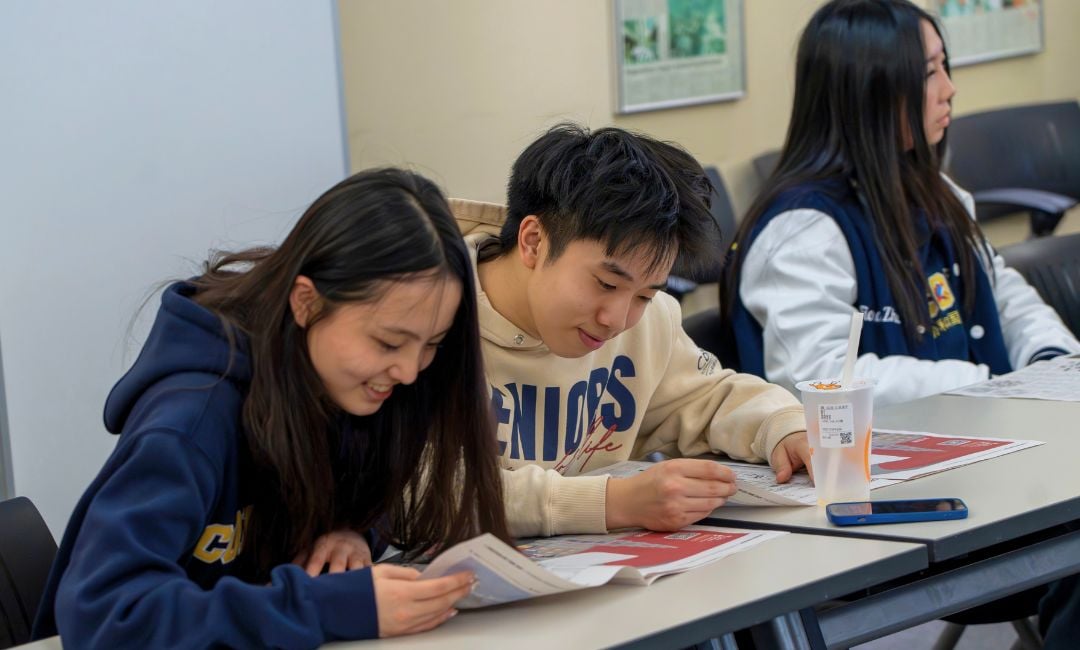 In the “new media” age, we have the convenience of all manner of information and entertainment at our finger tips. For many of us it’s hard to image a time without laptops, smartphones and tablets. That rings especially true for today’s youth, who have grown up using these devices to learn, connect and play. Yet, research shows that too much time in front of their screens can have a negative impact on children’s brains and affect how they do in school.
In the “new media” age, we have the convenience of all manner of information and entertainment at our finger tips. For many of us it’s hard to image a time without laptops, smartphones and tablets. That rings especially true for today’s youth, who have grown up using these devices to learn, connect and play. Yet, research shows that too much time in front of their screens can have a negative impact on children’s brains and affect how they do in school.
A study sponsored by the National Institutes of Health released in December 2018 found that kids who spent on average more than 7 hours a day in front of their screens had a thinning in the outer layer of the cerebral cortex. The thinning in the cerebral cortex has been associated with lower “crystalized” intelligence, which refers to the accumulation of knowledge, facts, and skills that are acquired throughout life, such as reading comprehension and vocabulary.
This region of the brain is responsible for executive functioning, which deals with our higher order thinking, i.e., data consolidation, problem-solving and planning. It also helps us regulate our impulses and emotions. It is among the last areas of the brain to fully mature. So it’s vital that parents help their children make healthy choices regarding the media they consume and the amount of time they spend consuming it.
 Part of the adolescent’s journey is exploring what it means to be an adult, through their language, through their relationships and even through the use of their screens, says Concordia Middle School Assistant Principal Billy Thomas. He advises parents not to villainize the use of screens, but help adolescents find a healthy balance. This means setting boundaries and modeling appropriate screen-time behavior in front of children. “Kids, especially adolescents, have a strong sense for hypocrisy,” he says. “It’s something they can pinpoint on right away.”
Part of the adolescent’s journey is exploring what it means to be an adult, through their language, through their relationships and even through the use of their screens, says Concordia Middle School Assistant Principal Billy Thomas. He advises parents not to villainize the use of screens, but help adolescents find a healthy balance. This means setting boundaries and modeling appropriate screen-time behavior in front of children. “Kids, especially adolescents, have a strong sense for hypocrisy,” he says. “It’s something they can pinpoint on right away.”
Because of the pervasiveness of today’s technology, enacting tech rules on kids can be a challenge for many parents. Fortunately, they are not alone. Partnering with the school's technology coaches, Concordia administrators recently hosted a screening of the celebrated educational documentary, Screenagers, in which filmmaker and physician Dr. Delaney Ruston reveals the negative effects too much screen time has on children. The film seeks to increase understanding and inspire communities to work together to better manage screen time in our homes and schools. Talking openly about solutions gives parents the confidence to set appropriate tech limits.
Screenagers emerged directly from Dr. Ruston’s own experience with the challenge of “raising teenagers whose attention was increasingly consumed by screen-based activities.” As a physician, she was curious to know how our new tech world was affecting the development of our children. Researching the impact of video gaming and social media on self-esteem, social skills and academics, she began to understand the necessity of better managing her teenagers’ screen time.
Our new lives with kids and tech is challenging and we can’t always know if we’re parenting the “right” way, says Ruston. “But I can know that I am parenting with integrity…by following my belief that I have a responsibility to provide my kids with the most diverse type of experiences as possible.”




